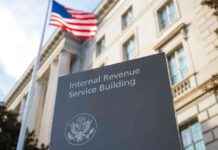In August 2023, a friend and I decided to start a book club as we both loved reading and discussing books. Instead of following the traditional book club format where everyone reads the same book, we wanted to keep it open and flexible. Our only rules were to meet in person at each other’s homes, talk about any book we were currently reading or had read in the past, and keep the meetup going even if it was just the two of us.
The idea of our book club spread quickly through word of mouth, and soon we had a group of eight people attending our first meeting. Over the past year and a half, we have had 15 successful meetups with a diverse group of readers sharing their love for books.
Watching the Olympic Games this summer made me reflect on the dedication and hard work that athletes put into achieving their goals. It made me realize that sometimes in life, opportunities come to us effortlessly, like feathers floating in the wind. Our book club was one of those opportunities that blossomed from a simple idea into a thriving community of book lovers.
The success of our book club can be attributed to various factors such as timing, like-minded individuals coming together, and perhaps a bit of luck. We didn’t set strict goals or targets for membership, which allowed the group to grow organically. As new people joined through recommendations, we found a local cafe that was willing to host our meetings, adding a new dimension to our gatherings.
One of the unique aspects of our book club is the wide range of books that are discussed, from historical fiction to bestsellers to graphic novels. Each meeting brings a different mix of readers with diverse preferences, leading to engaging discussions and debates about various literary topics. Despite differing opinions, everyone feels comfortable expressing themselves and participating in civil debates.
After each meeting, we compile a list of books that were discussed as a record, but we don’t track individual reading habits or attendance. The true measure of success for us lies in the quality of interactions and the sense of fulfillment we feel at the end of each session. Our book club has become a safe space where readers can freely share their thoughts, engage respectfully, and build a sense of community.
Looking back on our book club journey, I realize that it has been a source of learning, contribution, and achievement for me. By following my passion for books, I have connected with others, found my niche, and created a new community of readers. The book club has taught me the value of pursuing what you love and the power of bringing people together through a shared interest in literature.
































